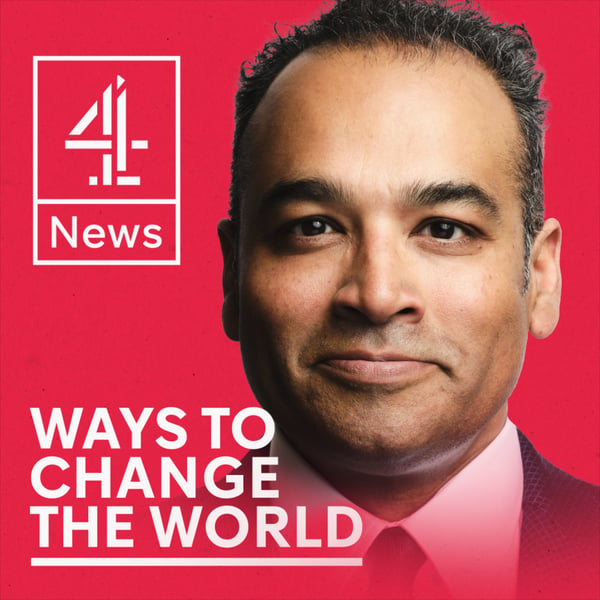Barbara Kingsolver on America’s opioid crisis and classist attitudes to rural communities
Ways to Change the World with Krishnan Guru-Murthy
Channel 4 News
4.6 • 1.1K Ratings
🗓️ 23 June 2023
⏱️ 34 minutes
🧾️ Download transcript
Summary
For a generation growing up in the rural US state of Virginia, opioid addiction isn't an abstraction - it's neighbours, parents, and friends.
Writer Barbara Kingsolver wanted to give these ‘lost boys’ of Appalachia a voice; to tell the story of the children forced into a life of foster care because their parents are dead, in prison or too incapacitated by addiction.
Today on Ways to Change the World, the award-winning author joins Krishnan Guru-Murthy to talk about America’s opioid crisis, the devastating impact it has on rural communities and how she set out to write ‘the great Appalachian novel’, tracing back the steps of Charles Dickens.
Produced by Silvia Maresca
Transcript
Click on a timestamp to play from that location
| 0:00.0 | Hello and welcome to ways to change the world. I'm Krishnan-Gurion Murphy and this is the podcast in which we talk to extraordinary people about the big ideas and their lives and the events that have helped shape them. |
| 0:11.0 | My guest this week is one of the United States foremost writers, novelists, poets, journalists. |
| 0:18.0 | Barbara King-Solver has just won the Pulitzer Prize for fiction for her latest work, Demon Copperhead. |
| 0:25.0 | And the paperback is just being released. The book's already a huge success in hardback. Welcome to the podcast. |
| 0:36.0 | We talk to a lot of people on this program about ways to change the world and you are a writer who perhaps not writing to change the world, you certainly write to reveal it. |
| 0:47.0 | That's a good way to put it. Thank you because I think that revealing and opening pieces of the world to other people's eyes and hearts is certainly a way to change the world. |
| 1:00.0 | I think that what's magical about fiction is that unlike journalism, which is also wonderful, it's good to get people information. |
| 1:11.0 | But in a novel, you put your own life aside and you go into the life of someone else. So you actually experience another life and I think you come away changed. |
| 1:22.0 | And in that way, I think all fiction is political. I think writing fiction, inviting people into other lives and sort of removing that otherness is a political act. |
| 1:36.0 | So I don't know that I mean, I don't really think of it as activism. Activism is something else that I do. You know, go to a school board meeting or write a letter to the editor. |
| 1:48.0 | But by using the craft of fiction and I guess applying the craft of fiction, I feel that we start with hearts changing hearts, right? |
| 1:59.0 | And this book tackles a topic that has been really picked over by different media, which is America's opioid crisis. |
| 2:08.0 | So what did you feel you could do with it that hadn't been explored in journalism and documentary and television series on streaming platforms and everything else? |
| 2:20.0 | That's a good question. And I had a very clear answer in my head from the beginning. I live in Southwestern Virginia in really the epicenter of the opioid crisis. |
| 2:32.0 | Purdue pharma looked at the metrics. They looked at data and they selected a handful of places in the United States where basically the population was vulnerable to this kind of exploitation. |
| 2:44.0 | They chose us because of structural poverty, because of very thinly stretched healthcare system. For all kinds of reasons, they knew they could pump their oxy cotton in there and make a fortune. |
| 2:59.0 | So that was done to us. I live with, I live there. I live with the consequences of this, especially for children. |
| 3:07.0 | We have a generation of kids growing up without parents because they're, I mean, a huge proportion of our kids are being raised by someone other than their parents because their parents are incarcerated or addicted or dead. |
| 3:22.0 | So it's the foster care system. It's a grandmother. It's someone who might not prefer to be raising them. That's the story I wanted to tell. |
| 3:31.0 | Well, I really admire journalists like Beth Macy and others who really tracked down the big story of the big players, you know, the DEA, the pharmaceutical companies, the lawsuits. |
| 3:46.0 | But I was afraid that there's this idea that now that the lawsuits have, you know, have played out and the judgments have been made that justice has been done. |
| 3:55.0 | It hasn't. These kids have to live that we all in my community have to live with this forever. So the stories of the big players have been told, I wanted to tell the stories of the little people and literally the kids, the children. |
... |
Please login to see the full transcript.
Disclaimer: The podcast and artwork embedded on this page are from Channel 4 News, and are the property of its owner and not affiliated with or endorsed by Tapesearch.
Generated transcripts are the property of Channel 4 News and are distributed freely under the Fair Use doctrine. Transcripts generated by Tapesearch are not guaranteed to be accurate.
Copyright © Tapesearch 2025.

